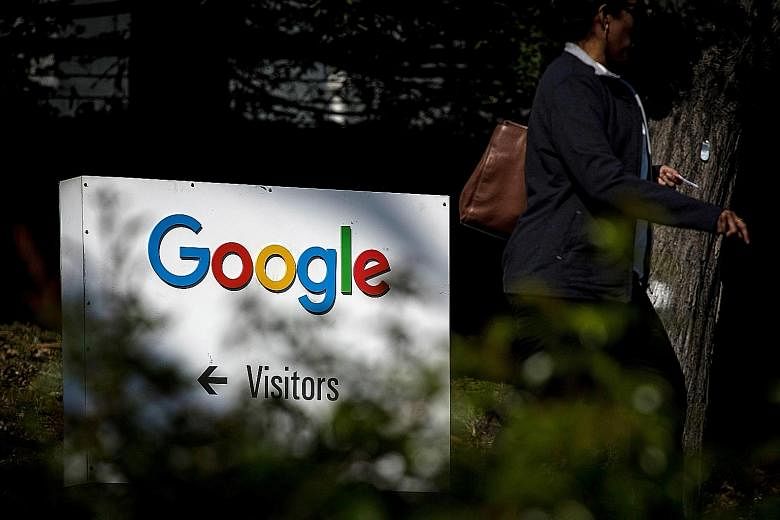SAN FRANCISCO • For the past year, select Google advertisers have had access to a potent new tool to track whether the ads they ran online led to a sale at a physical store in the United States. That insight came thanks in part to a stockpile of Mastercard transactions that Google paid for.
But most of the two billion Mastercard holders are not aware of this tracking, as the public had not been told about the arrangement.
Alphabet's Google and Mastercard brokered a business partnership during about four years of negotiations, said four people with knowledge of the deal, three of whom worked on it directly.
The alliance gave Google an unprecedented asset for measuring retail spending, part of the search giant's strategy to fortify its primary business against onslaughts from Amazon.com and others. But the deal could raise privacy concerns about how much consumer data technology firms quietly absorb.
"People don't expect what they buy physically in a store to be linked to what they are buying online," said lawyer Christine Bannan at the advocacy group Electronic Privacy Information Centre.
Google paid Mastercard millions of dollars for the data, said two people who worked on the deal.
A Google spokesman declined to comment on the partnership with Mastercard, but addressed the ads tool: "Before we launched this beta product last year, we built a new, double-blind encryption technology that prevents both Google and our partners from viewing our respective users' personally identifiable information.
"We do not have access to any personal information from our partners' credit and debit cards, nor do we share any personal information with our partners."
The firm said people can opt out of ad tracking using Google's Web and App Activity online console.
Mr Seth Eisen, a Mastercard spokesman, declined to comment specifically on Google. But he said Mastercard shares transaction trends with merchants and their service providers to help them measure "the effectiveness of their advertising campaigns".
The information, which includes sales volumes and average size of the purchase, is shared only with permission of the merchants, Mr Eisen added. "No individual transaction or personal data is provided," he said. "We do not provide insights that track, serve up ads to, or even measure ad effectiveness relating to, individual consumers."
Last year, when Google announced the service, called Store Sales Measurement, it said only that it had access to "approximately 70 per cent" of US credit and debit cards through partners, without naming them. That 70 per cent could mean it has deals with other credit card firms, totalling 70 per cent of the people who use credit and debit cards. Or it could mean that Google has deals with firms that include all card users, and 70 per cent of those are logged into Google accounts like Gmail when they click on a Google search ad.
Google confirmed that the service only applies to people who are logged in to one of its accounts and have not opted out of ad tracking.
Purchases made on Mastercard-brand cards accounted for around a quarter of US volumes last year, according to the financial research firm Nilson Report.
Through this test programme, Google can anonymously match these existing user profiles to purchases made in physical stores. The result is powerful: Google knows that people clicked on ads and can now tell advertisers this activity led to actual store sales.
For Google, the Mastercard deal fits into a broad effort to net more retail spending. It is hard to tell how online ads influence offline behaviour. That is a particular frustration for firms marketing items like apparel or home goods, which people will often research online but walk into actual stores to buy. That gap created a demand for Google to find ways for its biggest customers to gauge offline sales, and then connect them to the promotions they run on Google.
BLOOMBERG

